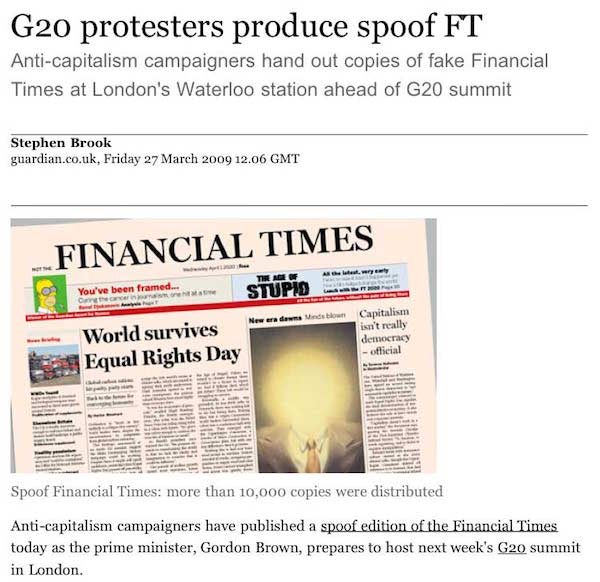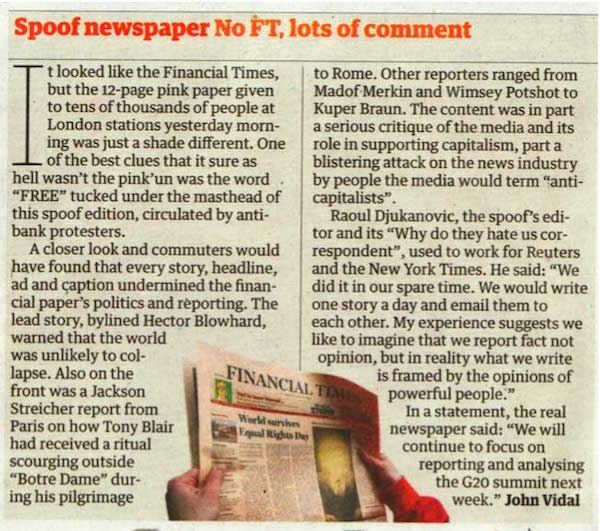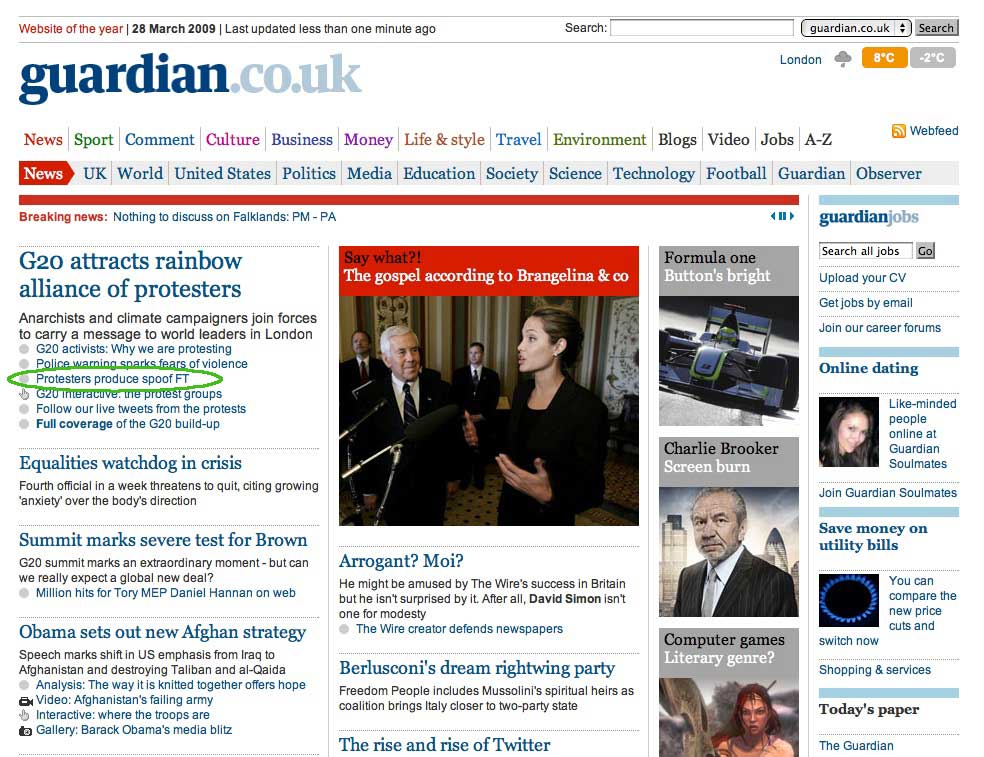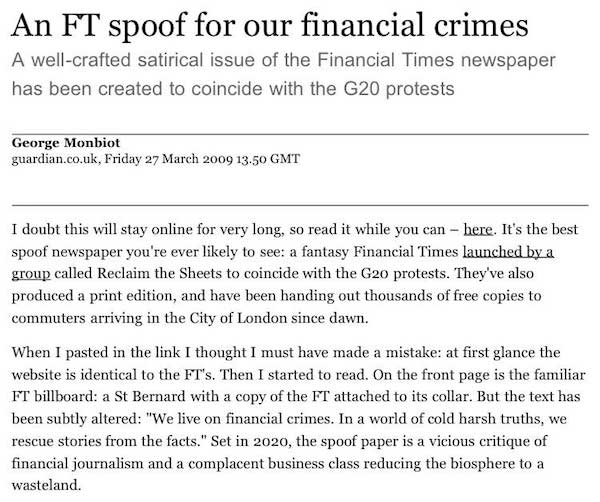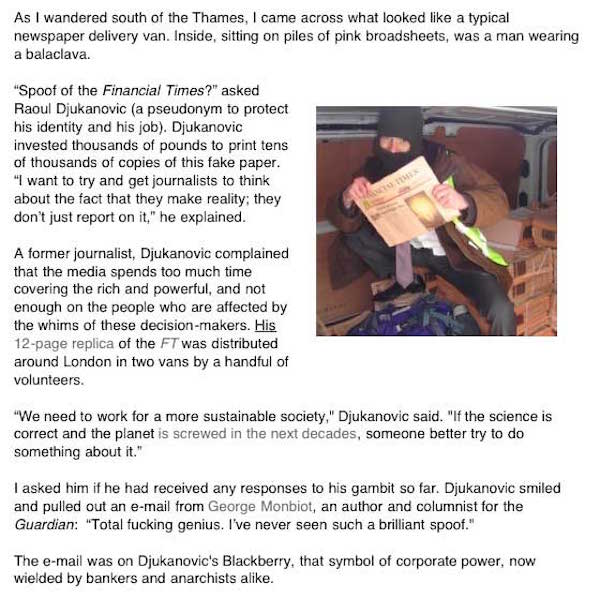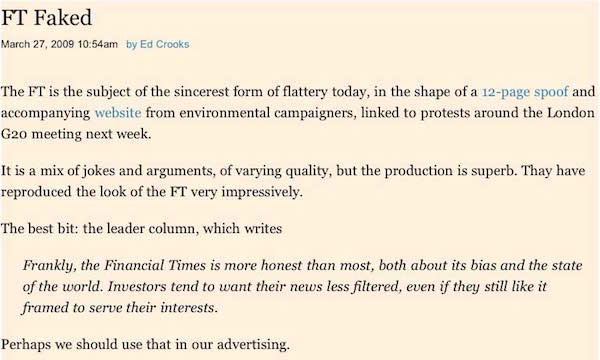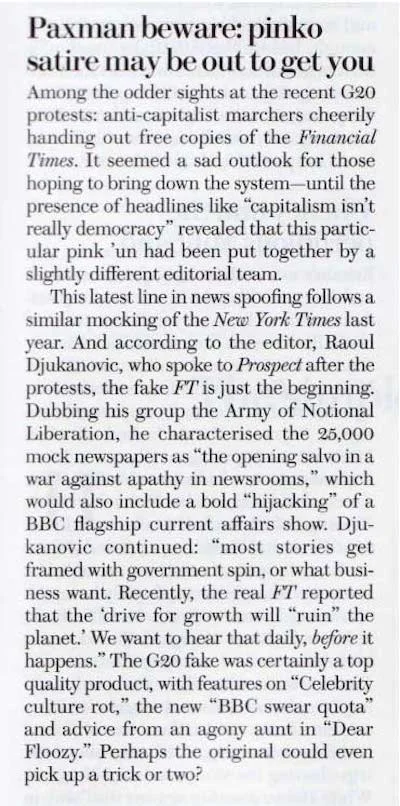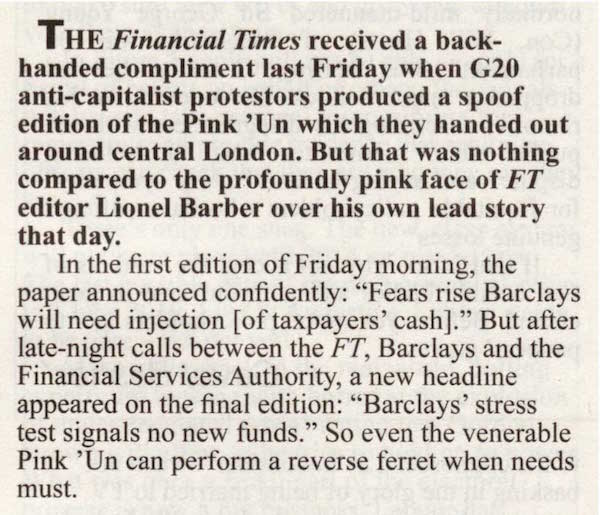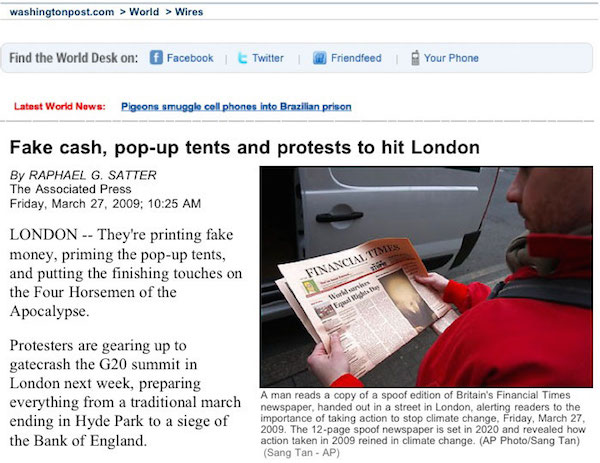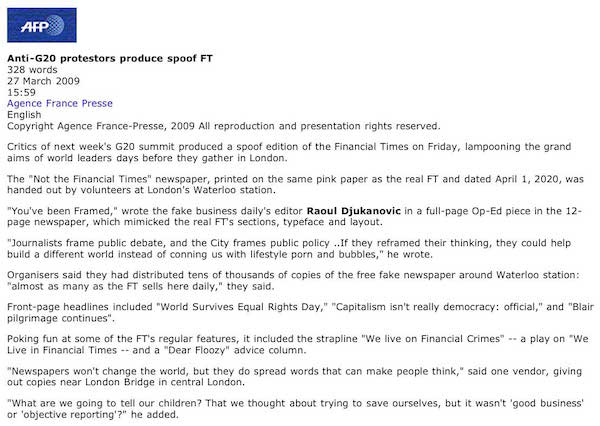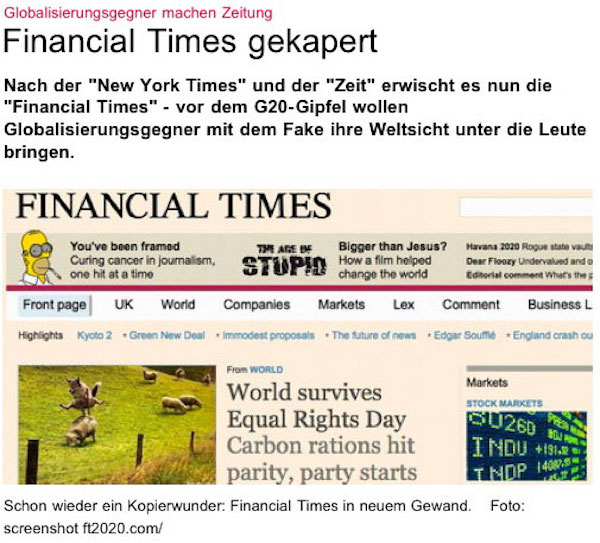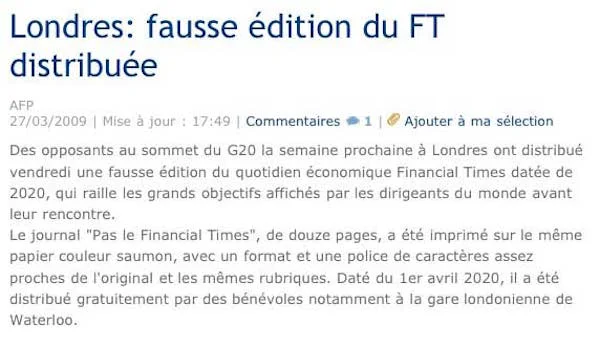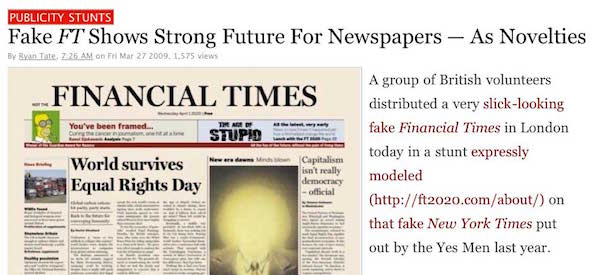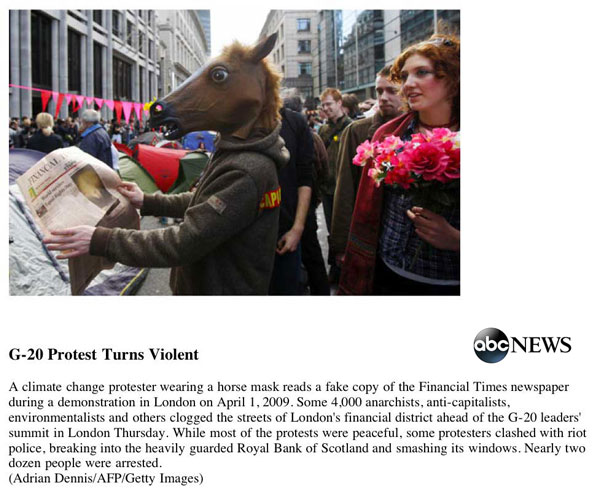Fake Financial Times
Distributed at G20 protests, and to commuters
Why blow three grand on made-up news?
By Daniel Simpson
Inspired by The Yes Men, and Reclaim The Streets, I published a fake Financial Times. Its satire had a serious message, as explained in this video.
Working for Reuters and the New York Times, I saw how governments and corporations skew news. Journalistic objectivity is a myth. Unless reporters set agendas themselves, they just serve someone else’s. It's “objective” to take dictation from officials (and to repeat their views as background facts), but disputing what they say is seen as “biased”. This limits how we think about alternatives. If they're presented as they look to those who run the world, not much can change.
The paper took three months to make, and cost £3,000. Philip Challinor wrote most of the funniest bits; I did most of the rest. Not much thought was devoted to fund-raising (click here to chip in), but we got help from about 100 volunteers, who distributed 25,000 copies around central London. We also borrowed the FT website, archived here.
I was surprised that the media showed interest. Most reporters lifted liberally from a press release, which kind of made the general point. Its text is repeated below, along with a screenshot of the website, and selected news coverage. A PDF of the paper is uploaded here.
Did the project achieve much? I enjoyed it...
“When lobbying for change gets you nowhere, what do you do? UK protesters are finding ever bigger - and sometimes, more risky - ways to make a statement.”
The quotation is drawn from this story. A few months later, the fake FT's analysis page popped up in the British Journalism Review.
FOR IMMEDIATE RELEASE
27 MARCH 2009
Fake FT wakes up London to radical action
Concerned Londoners today handed out copies of a spoof Financial Times, urging journalists and big business to make the future possible by putting people first.
Set in 2020, the 12-page paper revealed how action in 2009 reined in climate change, saving billions from extinction. Carbon rationing didn't kill us, it explained, despite the inconvenience to multinational companies. But we couldn't have endless growth with finite resources. Editors even apologised for suggesting otherwise.
"We live on financial crimes," the paper confessed in a front-page advert, which satirised a recent Financial Times billboard. "In a world of cold harsh truths," it said, beside a panting St Bernard atop a mountain, "we rescue stories from the facts."
Launched at dawn from behind Waterloo station, this coup was aimed at everyone's excuses for apathy. Unless we change the way we live radically, we'll make our world uninhabitable within decades. It's time for drastic action, and if governments won't take it, we have to do something ourselves.
"Journalists frame public debate, and the City frames public policy," said Raoul Djukanovic, who edited today's fake FT. "If they reframed their thinking, they could help build a different world instead of conning us with lifestyle porn and bubbles."
The paper was a full-colour replica of the iconic pink 'un, including news from Britain and abroad, and editorials and comment, poking fun at FT columnists. It was funded by donations on the Internet, and given away for free by volunteers. Tens of thousands of copies were printed – almost as many as the FT sells here daily.
Why bother, some commuters asked. "Newspapers won't change the world, but they do spread words that can make people think," said Marcos Marcuse, who handed out papers near London Bridge. "What are we going to tell our children? That we thought about trying to save ourselves, but it wasn't 'good business' or 'objective reporting'?"
MEDIA REACTION
A sample of coverage; click the images to read.
IN CONCLUSION
SOURCE: Bhagavad Gita
